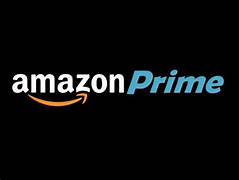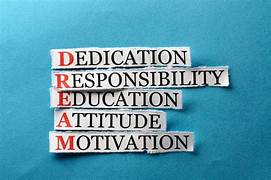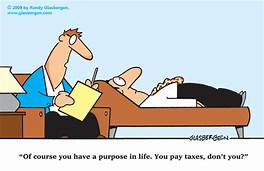
Half your income for rent? Say it ain’t so! According to a 2017 Harvard study (CNBC reporting), 45 million American households rent their home. Of those renting, almost half (21 million) are considered “burdened” because their rent is over 30% of their pre-tax income. 1 in 4 (11 million) are paying over 50% of their pre-tax income on rent; “severely burdened”. Craziness I say! According to Zillow, 21% is the historical “norm” (housing expense as a % of income).
Rental occupancy is at its highest level in 30 years. Apartment construction has jumped 35% since the housing crisis/recession due to increased demand; twice as many apartments were built in 2017 compared to 2016. 80% of recent apartment construction is considered “luxury”, largely due to the rising cost of construction (labor, materials, and land). Much of this building is in urban areas where the cost of living is already high. Is this sustainable?
I’m not going to insert politics into this discussion; however, I do want to give you some tools and ideas to help evaluate if you should rent or buy and how much of your income you should allocate to your monthly housing expense? If you don’t have a plan, you could find yourself “stuck” in a vicious cycle – not saving enough for a down payment (for purchasing a home) and therefore forced to keep paying ever-increasing rental payments. This could lead to living paycheck-to-paycheck, credit card debt, etc.

In most major markets, buying a home is a better long-term solution (vs. renting) – but only if you’re ready? Let’s ask some questions first. . .
Do you plan to move in less than 5 years? I know this might be a difficult question but you will need to give it your best guess anyhow. If you said yes, you should probably rent; the transaction costs of buying and selling a home are too high if you frequently move; rent instead.
How much time and money are you willing to spend on repairs and maintenance? This is especially important if you are interested in purchasing a single family home – rather than a condo or a townhome. Lifeandmyfinances.com recommends you estimate 1% of the purchase price for annual repairs & maintenance on your new home. The problem with home repairs and maintenance is that they are lumpy – they don’t occur on a regular basis; for example, it’s difficult to know when major appliances (furnace, air conditioner) will fail, or when the roof might spring a leak. These expenses will surely occur; you won’t have a plumbing problem – you’ll have a plumbing emergency. It’s wise to set aside money (monthly) into a housing fund that can be used to pay for these irregular, but inevitable expenses.
Are you afraid? You will be. . . Yoda

How much will it cost in rent vs. a mortgage in your part of the country?
Do some research – look at comparable homes in your area – both for sale and for rent. Add up the monthly expense for interest, property taxes, and insurance – this is the rental portion of a monthly mortgage payment – ignore the principle portion of your payment; housing prices increase at basically the same rate as inflation (over long periods of time), so its extremely likely that you will sell your house for more than you originally paid for it. Compare the rental portion of your monthly mortgage payment to rent for a comparable house. Also factor in that your rent is likely to go up over time – probably in line with inflation; however, it has jumped 4 to 5% in some areas. Just sayin’ . . .
I will share my situation
$582 monthly interest (goes down over time)
$311 monthly escrow (property taxes and insurance) (goes up over time)
$216 monthly repairs & maintenance (using the 1% factor) (goes up over time)
$1,109 total
When I looked up comparably sized houses for rent in my zip code (zillow.com) I found a range of $1,720 to $1,995. Realize that the landlord is paying comparable expenses too (property taxes, insurance, principle, interest), plus repairs and maintenance – as well as a profit. . .
I’m saving about $600 – $900 per month; probably helps that I’ve lived in the same house for the past 13 years.
I don’t really think it’s super important whether you rent or purchase your home – but I do want you to limit your housing expense to 25% (no more than 30%) of your pre-tax income. I believe this gives you the best chance to succeed in personal finance. I personally believe that purchasing is better than renting (financially at least) over the long-run (most of the time anyhow). You can also make home improvements/decorating decisions without getting the approval of the landlord; plus you might be able to deduct the interest and property taxes on your income tax returns (if you itemize). The landlord is going to set the rent at a level to cover his costs as well as some profit. If you would rather rely on the landlord for needed repairs & maintenance, then you are going to ultimately pay for that – via higher rent. This concept applies to pretty much any convenience in life.
Don’t buy more house than you need. Although purchasing a home might be financially beneficial over time (vs. renting); buying a home doesn’t compare favorably to the returns you could get in a low-cost index mutual fund (invested in equities). Buy as much house as you need and invest the rest!
Some specific advice from lifeandmyfinances.com
If you are a family of 3 (with an average income) aim for a 3 bedroom and limit the square footage to 1500 (or less).
If you are single – go with a one bedroom condo – preferably close to your job.
You might ask yourself how handy you are and if you have time to do repairs & maintenance – if you really don’t want the inconvenience of repairs & maintenance then maybe you should opt for a townhouse or condo, whereby the homeowners association is usually responsible for exterior maintenance. Again, if you are want someone else to do these services for you – expect to pay for it – usually via much higher monthly HOA dues.
In most markets, the rental portion of your mortgage will be less than a comparable house would rent for; however, you have to use this savings to “offset” the upfront mortgage costs: appraisal, loan origination, realtor fees, etc. – could easily be $3,000 to $5,000. A portion of this savings will also be used for repairs & maintenance – use 1% of the purchase price as an estimate.
Maybe you think 25% – 30% of your income for housing sounds great, but when you look at prices in your area, the math just doesn’t work – everything is too expensive!
Some practical, but not necessarily easy/convenient, advice:
1) consider getting a roommate
2) consider a different location – the most popular parts of town usually have exceptionally high prices for real estate.
3) consider a different occupation/career. Maybe your income is too low. See my previous post on improving your career path.
https://jimmysmoneytips.com/2017/08/22/career-advice-2/
4) consider a tiny home – I know this sounds a little crazy/extreme, but use it as a tool to save up for a really good down-payment for your next house. Your first house doesn’t have to be your “forever” house. I recommend a smaller “starter” home as your first home.
5) shop around – especially if you are renting – don’t just accept a price increase from the landlord; use the internet and look for a better price. It’s cheaper (and more convenient) to at least attempt to negotiate with your current landlord – good tenants are hard to find – leverage that fact into a better price. You can always threaten to move. Go on social media and ask for suggestions – maybe someone you know has a room for rent.

Let me know what you think – leave a comment below with your opinion of buying vs. renting in your area.































